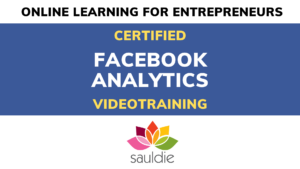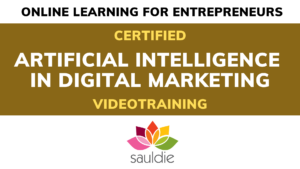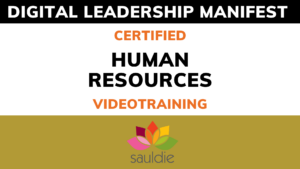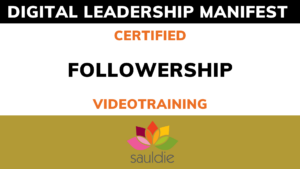Description
This eBook offers you a broad overview of digital law in Germany and Europe. It was written specifically for decision-makers, executives and founders. The individual sections of the book build on each other. For this reason, they should be read in order. If you already have a sound knowledge of individual topics, you can also skip these sections and read the subsequent sections.
Even for readers who have never dealt with digital law, the eBook offers an optimal introduction to the topic. To make this possible, the use of complicated technical terms has been largely and deliberately avoided in favor of better readability. Where theoretical terms from current scientific or legal debates have been taken up, these are illustrated with practical examples. Altogether the eBook ensures in such a way that straight humans without previous knowledge can acquire useful knowledge for the entrepreneurial practice. But what is the structure of the eBook and how does the reading approach its subject step by step?
The first section forms a basic chapter. In this, basic pillars of digital commerce and production in the digital age are negotiated and it is explained which legal challenges these entail. On the one hand, relevant current laws that are relevant for digital law are addressed. On the other hand, challenges are named in which there is a need for action. For entrepreneurs, digital commerce plays a role in this context, as it takes place via online stores, for example. In addition, new forms of opinion research and target group analysis are addressed, such as those carried out in the context of Big Data and social media analyses. Legal framework conditions must also be observed in this work, especially as it involves the collection and processing of data. Finally, smart production, the use of artificial intelligence and the Internet of Things also bring with them a whole range of legal challenges and entrepreneurial opportunities for action. They will be outlined in this first chapter and give you an idea of what dealing with digital law is important for.
The basic section is followed by chapters, each dedicated to a specific part of entrepreneurial action. The second section of the eBook will be about the online store and online sales. On this topic, the section will first provide a section on data protection in the digital age. At the latest since the introduction of the General Data Protection Regulation (DSGVO), which was specified at the European level and implemented at the national level, this topic has moved into the general consciousness. However, the protection of personal data has long since extended beyond the design of websites. It also applies to countless other areas in which data is digitally collected, aggregated and stored. Two further sections will deal with the entrepreneurial design of websites as well as online stores and the legal challenges in digital sales. This part will conclude with a section on accessibility in eCommerce.
The third chapter is dedicated to production. Here, too, digital law in Germany and Europe brings with it many challenges. To this end, new working time models and flexible work as well as the topic of occupational health and safety in the digital age are addressed first. On the one hand, the law sets rules here about not collecting or at least not using certain data. On the other hand, however, it can also open up certain possibilities. If you are aware of these, you can strengthen the work culture in your company or work group. Secondly, the chapter will be devoted to digital distribution in the context of the issue of and action against illegal copying. Third, it will address copyright and patents in the Digital Age. Fourth, Digital Law will be addressed in the context of the use of drone technology.
The fourth chapter of the eBook is dedicated to marketing. This also brings new legal challenges and economic opportunities. The first part of this section is devoted to the phenomenon of shitstorms and raises the question of legal options for action against digital negative phenomena of this kind. The second section will then focus on influencers and forms of new digital marketing. Various rulings and frameworks have set limits to this marketing.
At the same time, precisely this marketing offers one of the decisive opportunities for action in the digital age. It can be exploited by young companies in particular. Third, new forms of target group research are addressed through digital data analysis. Digital law also plays an important role in this work. If you want to operate a successful marketing and approach exactly those customers who will ensure you good sales, you should specifically inform yourself about new marketing and its legal framework.
The fifth chapter is dedicated to smart production. Here, the topic of artificial intelligence and the Internet of Things is outlined first. A second section will then deal with a particular challenge that arises in this context. The importance of translating legal terms for machine action will be explained. The third section discusses software for contract management as a useful tool in the Digital Age. Fourth, the possibility of online identification as a building block of digital contracting is explained. The eBook is concluded by a conclusion. This summarizes the most important findings from the reading. In addition, the development of digital law in the present is outlined and a brief outlook is given on the most important challenges in the future. At the end of the book, you will then find literature references that you can use for further engagement with the topic of digital law in Germany and Europe.
Table of contents:
- Digital Law and Law in the Digital Age
- Online sales and digital law
- Challenges in the Production Field
- New opportunities and legal challenges in marketing
- Smart manufacturing and the new law
- Conclusion
- Literature and source references
What does a PLR license offer you?
Private Label Rights (PLR) help you save time on content creation by purchasing rights so that you can modify the material in our eBook and claim yourself as the author, and share it with your subscribers in your own schools, for example, or by simply reselling this eBook and keeping 100% of the profits for yourself.
You will receive the pdf file after purchase and also the corresponding Word file at your free disposal!
Here are your license terms for the above PLR project:
[YES] you can sell it
[YES] you can offer it on a paid membership site
[YES] you can change the title of the product
[YES] You can edit the content (rewrite it, add something, leave something out, …)
[YES] You can insert your affiliate links (as an additional source of money).
[YES] You can make yourself out to be the author of the product
[YES] You are allowed to use it in your trainings and also offer it in your company’s portal as a download for employees
[NO] You are allowed to claim the copyright for yourself
[NO] The product may be given away as a gift.
[NO] You may split the content into several parts to make it a series of articles (e.g. for your blog)
[NO] You may offer the project or parts of it in free public member sites
[NO] You may use the content to create your own website from it
If you violate this PLR license, damages will be due from the violator to the licensor.
Why a PLR license might be interesting for you
Private label rights products can be a useful tool for companies that don’t have the resources or time to write their own content. PLR products can not only expand knowledge within your own company, but also attract potential customers looking for value that other companies don’t offer.





Spelling error report
The following text will be sent to our editors: